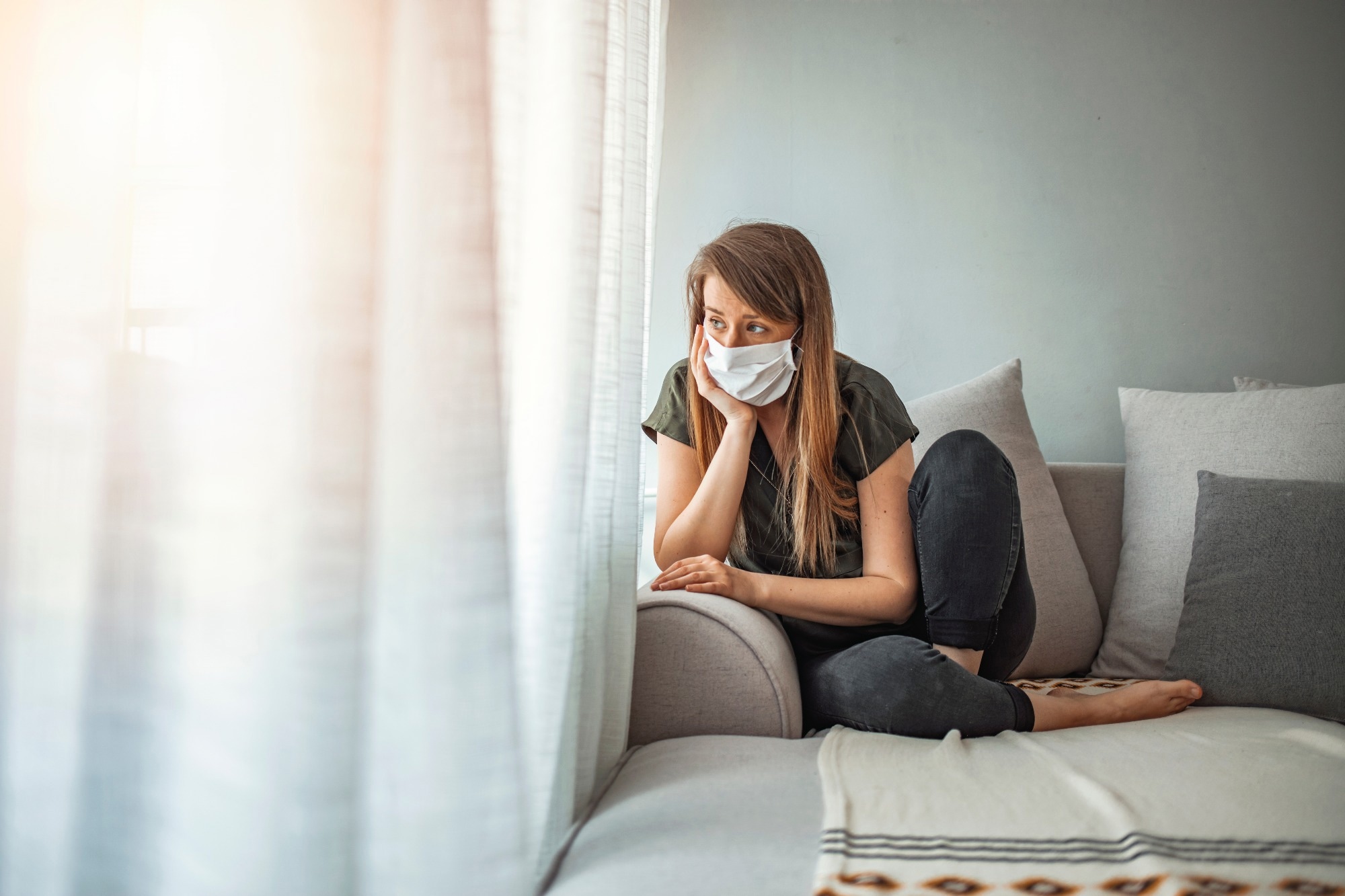In a recent article published in PLoS One, researchers conducted an online survey among 302 female students from the University of Rennes in France between February and May 2021 to assess the frequency of overeating episodes in response to six emotions experienced during the coronavirus disease 2019 (COVID-19)-induced university closures.

From a broader perspective, it helped the researchers understand social and psychological factors associated with stress response.
Background
Except for September-October 2021, universities in France remained fully closed between March 2020 and August 2021 due to the COVID-19 pandemic. It prevented socialization among young adult students, and this lack of external support made them vulnerable to mental health problems.
This unprecedented situation drastically altered their social and personal lives. To cope, many students turned to maladaptive behaviors. While studies showed that drinking and smoking remained under control during the COVID-19-induced lockdown in France, a review of 23 studies highlighted a shift in eating habits during the COVID-19 crisis.
Researchers speculated this shift was related to emotional eating, i.e., (over)eating in response to negative emotions, characterized by an increased preference for snacks, sweets, and ultra-processed food rather than fresh food.
It has garnered more attention from a clinical perspective because a negative emotional state is an antecedent to binge eating episodes, and young women are typically more vulnerable to developing it.
Research suggests that women binge eat for psychological comfort rather than physiological needs, and that binge eating is linked to impulsivity and boredom. Women were also more likely to report social isolation as being difficult during the COVID-19 crisis.
Since emotional overeating, although a coping mechanism, could lead to adverse health problems, for example addiction, it is crucial to characterize its relationship to social isolation.
About the study
In the present study, researchers performed an online survey to gather sociodemographic, substance abuse, boredom proneness, and impulsivity data of all participating female students using the validated, six-item, self-report Emotional Overeating Questionnaire (EOQ).
Next, they used exploratory factor analyses (EFA) to determine EOQ structure and index all EOQ items for further analysis. They analyzed overeating in response to six emotions (anxiety, loneliness, sadness, fatigue, anger, and happiness) and expressed their frequency as percentages. The researchers used linear regression models to explore associations between overeating and other covariates.
They assessed substance abuse using the CRAFFT screening test and the Boredom Proneness Scale (BPS) developed by Farmer and Sundberg to measure the tendency to become bored. Likewise, they used a 30-item Barratt Impulsiveness Scale (BIS) to quantify impulsiveness.
Furthermore, the researchers used the World Health Organization Well-being Index (WHO-5) to assess the subjective psychological well-being of the participating female students and an 18-item three-factor eating questionnaire (TFEQ-R18) to measure the cognitive and behavioral components of eating.
Results
The 302 female survey respondents comprising the study cohort had mean age and body mass index of 20.9 years and 21.7±3.4, respectively. Nearly 37.4% of these females lived alone. The study found that 91.4% of female survey respondents (9/10) reported intermittent emotional overeating episodes in the last 28-day period.
Overeating episodes reached at least six and 13–15 days in 60.3% and 38.4% of cases, respectively. Only 24.8% of female students (1/4) reported overeating episodes beyond 15 days in the past month.
Further, most survey respondents (75.5%) reported emotional OE episodes in response to anxiety, followed by sadness, happiness, loneliness, tiredness, and anger, with respective numbers equating to 64.9%, 59.9%, 57.9%, 51.7%, and 31.1% of respondents.
Furthermore, EFA found a latent variable reflecting distress-induced overeating (DIO) for all EOQ items except happiness. In response to this emotion, overeating positively correlated with living in a family, well-being, and loss of control over food consumption.
In a multivariate analysis, the DIO factor score correlated negatively with age and well-being but positively with boredom proneness, tobacco use, impulsivity, not resisting emotional cues, and losing control over food consumption.
Furthermore, the authors noted that overeating was not markedly related to BMI or substance abuse. Encouragingly, only 12.2 and 7.2% of female students reported alcohol or substance abuse and regular smoking, levels similar to pre-pandemic levels.
Conclusion
The study results suggested that social isolation during the COVID-19 crisis had an effect on the eating behaviors of female students, given that there was a dramatic increase in female students reporting emotional overeating between a three-year prior survey and this study.
Per EFA findings, sadness and loneliness contributed to DIO among the study participants as much as anxiety and behavioral patterns were also related to DIO, similar to boredom proneness and impulsivity. Furthermore, DIO was more frequent in smokers and less frequent in older female students.
Emotional overeating in response to stress observed during this study reflects eating tendencies typical of young women.
Thus, a better understanding of the neurobiological mechanisms underlying emotional eating in response to emotions amid a situation where social stimulation was less could help improve mitigation interventions targeted at disordered eating among women coping with stress and isolation.
- Constant A, Fortier A, Serrand Y, et al. (2023). Emotional overeating affected nine in ten female students during the COVID-19 university closure: A cross-sectional study in France. PLOS ONE, 18(8), e0286439. doi:10.1371/journal.pone.0286439. https://journals.plos.org/plosone/article?id=10.1371/journal.pone.0286439
Posted in: Medical Research News | Women's Health News | Disease/Infection News
Tags: Addiction, Alcohol, Anxiety, Body Mass Index, Coronavirus, Coronavirus Disease COVID-19, covid-19, Fatigue, Food, Frequency, Impulsiveness, Mental Health, Pandemic, Research, Smoking, Stress, students, Substance Abuse, Tiredness, Tobacco

Written by
Neha Mathur
Neha is a digital marketing professional based in Gurugram, India. She has a Master’s degree from the University of Rajasthan with a specialization in Biotechnology in 2008. She has experience in pre-clinical research as part of her research project in The Department of Toxicology at the prestigious Central Drug Research Institute (CDRI), Lucknow, India. She also holds a certification in C++ programming.
